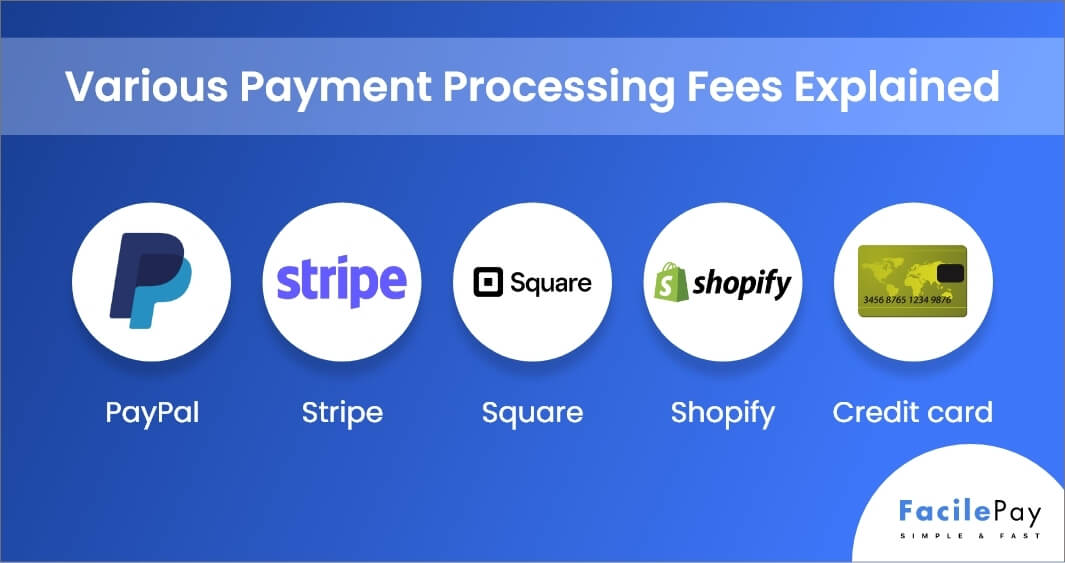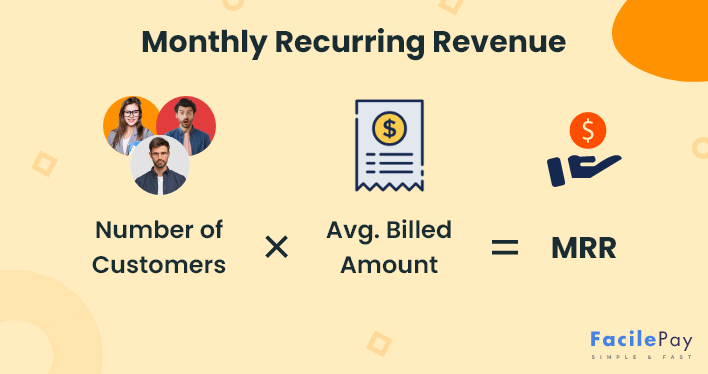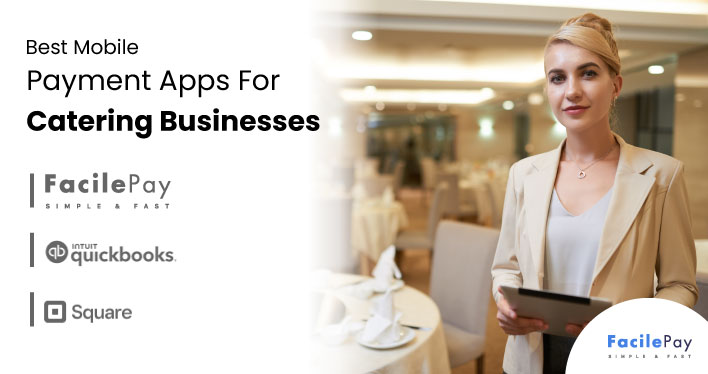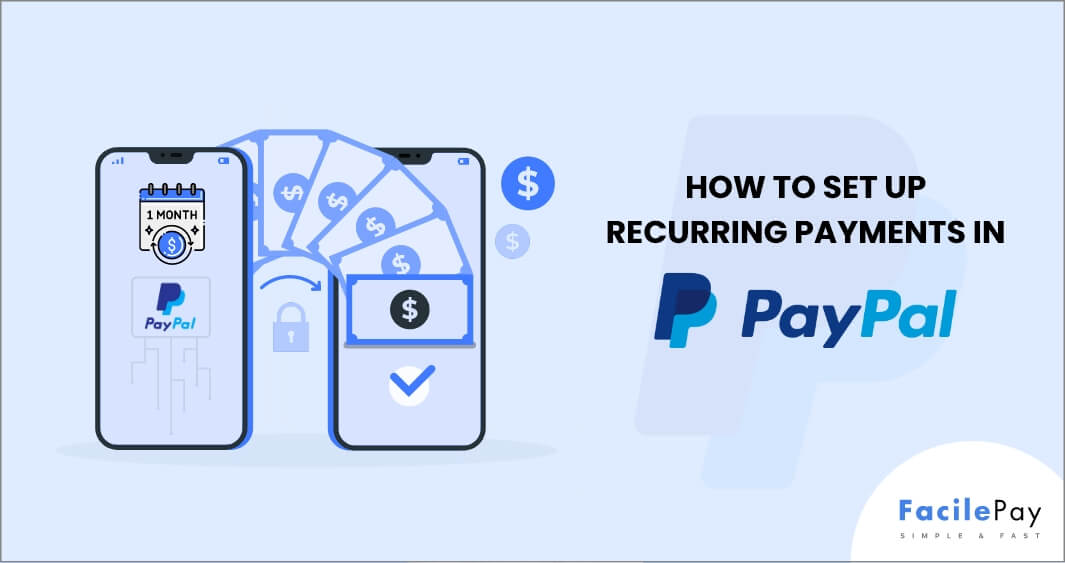- Online payment processing fees vary depending on the payment method, transaction volume, and other factors.
- It’s important to understand the different types of fees, such as transaction fees, interchange fees, and chargeback fees.
- Negotiating with payment processors and choosing the right payment methods can help reduce fees.
- Offering incentives for customers to pay with lower-cost payment methods can also help reduce processing fees.
📝Key Takeaways:
Payment processors are making the most of online business today.
No business can survive without accepting online payments as many customers do not carry hard cash today and prefer debit cards, credit card transactions, or e-wallets for online payments.
However, to receive payments to your bank account, you are bound to pay a certain % of processing fees for each transaction.
Being a merchant your might wonder “How do I avoid online payment processing fees?”, in reality, there is no escape. However, you might use a few tips to reduce the fees.
In this blog, you will learn about different types of payment processing providers and the assessment fee they charge per transaction.
Contents
What are Payment Processing Fees?
In simple terms, to process an online payment, there are 4 entities, the payer, the receiver, acquiring bank, and issuing bank. All of these are connected to a payment processor that allows easy and quick fund transfers.
The payment validation is completed after the deduction of the payment processing fee. However, the payment fee depends on the below key factors
-
Key Factors
- Payment processing fees refer to fees borne by merchants for processing credit card payments and online payments from their customers.
- The amount of fees depends on the pricing model preferred by the processor and the level of each transaction risk.
- eCommerce transactions and over-the-phone transactions come with higher processing fees than swiping the card physically at the store.
- The type of card used by the user and the currency conversion fees if applicable.
Let’s quickly get on with the comparison between different payment processor fees.
Payment Processor Comparison Chart
To make you understand the comparison between different payment gateways and the average credit card processing fee, we have bifurcated based on monthly fees and transaction fees, and setup fees.
1. Transaction Fees
Some of the payment gateways charge a small amount for letting you use their app. You will either pay a flat fee per transaction or a percentage of the amount on bulk purchases or both.
2. Monthly Fees
Some online payment gateways will charge a subscription fee monthly. The charges may vary depending on the volume of payments processed per month.
3. Setup Fees
Setup fees include any costs that are associated with integrating any payment gateway. It is a one-time fee that the business needs to pay.
The below table depicts the transaction fee charged by top online payment gateways.
| PayPal | Stripe | Square | Shopify | |
|---|---|---|---|---|
| Monthly Fee | $0 | $0 | $69 | $79 |
| Processing Fee | 2.9% +30c | 2.9% +30c | 2.9% +30c | 2.9% +30c |
| Supported Payments | Form payments, recurring billing and mobile payments | Form payments, online, in-person, recurring billing | Online, in-person, recurring billing | Online, in-person, recurring payments |
Another way to accept payments is via credit card networks. Multiple credit card companies have issued different credit cards for online transactions with assessment fees per transaction.
Let us now study what are credit card processing fees and the cost to accept credit card payments.
What are Credit Card Processing Fees?
A credit card processing fee is the amount a business has to pay every time they accept payment through credit card networks. The monthly fee depends on various factors like,
- Type of card issued
- Size of transaction
- Merchant type
- Payment processing provider
- Location of the business
- Security and fraud protection measures
Let us read below, the multiple types of fees associated with each credit card processor.
1. Interchange Fees
The interchange fee is a payment made directly to the issuer as a credit card transaction fee. The fees may vary on the line of business, the type of card used, and the transaction amount. It is typically a percentage of the transaction value, ranging from 1.5% to 2.5% or more, and is meant to cover the cost of processing the transaction and reducing the risk of fraud.
2. Payment Processor Fees
This is a fee charged by the acquiring bank or a third-party payment processor to the merchant for processing credit card transactions. It typically consists of both interchange and assessment fees, as well as other fees such as a transaction fee, a monthly fee, and a setup fee. The payment processing fee can range from 2% to 4% of the transaction value.
3. Assessment Fees
This is a fixed fee that is paid by the acquiring bank to the credit card network for each credit card payment. The credit card processing company charges a credit card convenience fee, usually a few cents per transaction to maintain and operate the credit card companies.
A merchant account provider who is not ready to pay credit card processing costs might choose or accept only certain types of credit cards or a different payment processing provider.
Let us give you the average credit card payment processor charges.
Breakdown in Major Credit Card Networks Processing Fee
As mentioned above, credit card processing fees vary on various factors. However, here is the en estimation of credit card transaction fees as per the four major credit card networks.
| Credit Card | Average Interchange Fees | Average Assessment Fees |
|---|---|---|
| Visa | 1.15% – 2.40% | 0.14% |
| Mastercard | 1.15% – 2.50% | 0.1375% for transactions below $1000 0.01% for transactions above $1000 |
| American Express | 1.43% – 3.30% | 0.15% |
| Discover | 1.35% – 2.40% | 0.13% |
These are rough estimates of credit card fees per transaction. However, the actual fees depend on the merchant services provider and the transaction value. To get an accurate estimate of the credit card processing fees, you should consult the credit card issuers or payment processors.
After all the above information that you have gathered, as a merchant, you might still want to know how to reduce the processing fees. Well, to give you an idea on the same, we have listed below a few key points to reduce credit card fees or higher interchange fees while accepting payments.
5 Key Points to Consider to Minimize Per Transaction Fee
1. Shop Around for the Best Payment Processing Company
One of the best ways to minimize payment fees is to shop around and compare the fee structure offered by online payment gateway or on credit and debit card transactions. Look for providers that specialize in your line of business and offer competitive pricing and good customer service. Factors such as interchange plus pricing, and volume discounts.
2. Negotiate With Your Current Payment Provider
If you have already integrated a payment processor, you can negotiate for lower processing fees. Explain your business volume and transactions that happen on a daily basis. Ask for a lower monthly fee or concessions on overall costs.
3. Use the Flat Rate Pricing Model
There are some payment providers that offer flat-rate pricing where you can pay a fixed amount regardless of the card type or transaction amount. This can be a cost-effective option for high-volume businesses and also small transaction businesses, with no additional fees.
4. Consider a Virtual Terminal
If you process payments over the phone or email, a virtual terminal may charge lower fees. This allows you to process online payments without the need for any debit cards or credit card readers. Virtual terminal helps in reducing monthly and annual fees and managing the costs of the payment.
5. Stay Updated on Industry Developments
Payment processing fees can change quickly and it is important to stay updated with the new developments in the industry. Attend trade shows, and conferences, and follow the payment processing providers to stay ahead.
Looks like you are still in a dilemma regarding online payment processing fees and which one to choose as your own payment network. We published a blog last week, where you will get more insights on popular online payment services.
Frequently Asked Questions
-
How can I lower my payment processing fee?
Talk to a credit card issuer or see if your fees are more than customers pay. In some cases, you can negotiate fees with the credit card issuer, set up the terminals, and use the address verification system to avoid fraud.
-
Is credit card processing for payments secure?
Yes. There’s a lot of sensitive information being transferred across the networks. Credit card processors are PCI-compliant that use advanced encryption methods to secure the transactions and the information shared.
-
Is it legal to pass credit card processing fees to our customers?
Some businesses charge extra to cover the processing fees known as surcharge fees or credit card convenience fees. This approach saves the merchant from paying their own credit card transaction fees but a few states consider this as an illegal practice:
- California
- Colorado
- Connecticut
- Kansas
- Massachusetts
- New York
- Oklahoma
- Texas
-
How do contactless credit cards impact the interchange fee?
When the card is present, contactless cards receive the same interchange rate as soon as the card is inserted into the reader. Contactless cards will not have higher fees than other card types and will also receive similar interchange rates when the card is not present.
What are Your Thoughts on Online Payment Processing Fees?
The purpose of this blog is to boost your business with low-cost and secure payment processors. Businesses are not profitable until you save money. If you carry business beyond international borders, you need to care for your payments along with your customers.
Try to choose the best online payment processing provider and maximize your profits. However, do not forget to give your customers the best and hassle-free payment experience.




